
The Russian Academy of Sciences consists of the national academy of Russia; a network of scientific research institutes from across the Russian Federation; and additional scientific and social units such as libraries, publishing units, and hospitals.
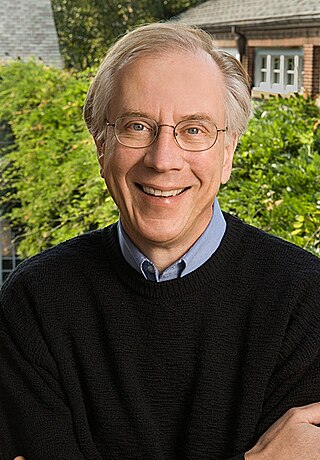
Thomas Robert Cech is an American chemist who shared the 1989 Nobel Prize in Chemistry with Sidney Altman for their discovery of the catalytic properties of RNA. Cech discovered that RNA could itself cut strands of RNA, suggesting that life might have started as RNA. He found that RNA can not only transmit instructions, but that it can act as a speed up the necessary reactions.

Randy Wayne Schekman is an American cell biologist at the University of California, Berkeley, former editor-in-chief of Proceedings of the National Academy of Sciences and former editor of Annual Review of Cell and Developmental Biology. In 2011, he was announced as the editor of eLife, a new high-profile open-access journal published by the Howard Hughes Medical Institute, the Max Planck Society and the Wellcome Trust launching in 2012. He was elected to the National Academy of Sciences in 1992. Schekman shared the 2013 Nobel Prize for Physiology or Medicine with James Rothman and Thomas C. Südhof for their ground-breaking work on cell membrane vesicle trafficking.
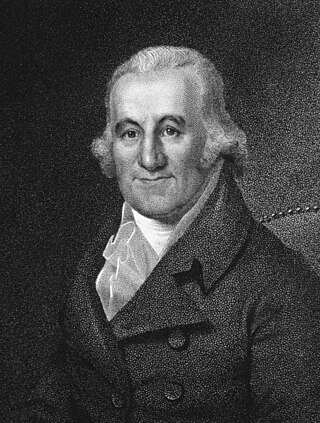
Caspar Wistar was an American physician and anatomist. He is sometimes referred to as Caspar Wistar the Younger, to distinguish him from his grandfather of the same name. The plant genus Wisteria is named for him.

Martin Karplus is an Austrian and American theoretical chemist. He is the Director of the Biophysical Chemistry Laboratory, a joint laboratory between the French National Center for Scientific Research and the University of Strasbourg, France. He is also the Theodore William Richards Professor of Chemistry, emeritus at Harvard University. Karplus received the 2013 Nobel Prize in Chemistry, together with Michael Levitt and Arieh Warshel, for "the development of multiscale models for complex chemical systems".
Thomas Eugene Shenk is an American virologist. He is currently Emeritus Professor of Life Sciences in the Department of Molecular Biology at Princeton University.
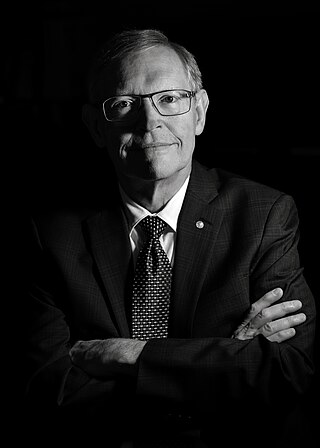
William Esco Moerner, also known as W. E. Moerner, is an American physical chemist and chemical physicist with current work in the biophysics and imaging of single molecules. He is credited with achieving the first optical detection and spectroscopy of a single molecule in condensed phases, along with his postdoc, Lothar Kador. Optical study of single molecules has subsequently become a widely used single-molecule experiment in chemistry, physics and biology. In 2014, he was awarded the Nobel Prize in Chemistry.
Boris Leonidovich Altshuler is a professor of theoretical physics at Columbia University. His specialty is theoretical condensed matter physics.
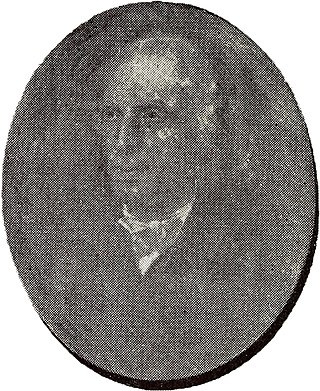
Robert Patterson was an Irish-American mathematician and director of the United States Mint from 1806 to 1824. He was a professor of mathematics at the University of Pennsylvania from 1779 to 1810, professor of natural history and mathematics and vice provost from 1810 to 1813. At the request of Thomas Jefferson, he advised Meriwether Lewis on the purchase and usage of navigational equipment for the Lewis and Clark Expedition.

Samuel David Gross was an American academic trauma surgeon. Surgeon biographer Isaac Minis Hays called Gross "The Nestor of American Surgery." He is immortalized in Thomas Eakins' The Gross Clinic (1875), a prominent American painting of the nineteenth century. A bronze statue of him was cast by Alexander Stirling Calder and erected on the National Mall, but moved in 1970 to Thomas Jefferson University in Philadelphia.
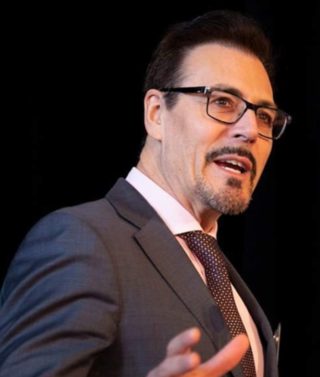
Richard G. Pestell is an Australian American oncologist, endocrinologist and research scientist. Pestell was appointed an Officer of the Order of Australia for distinguished service to medicine and medical education in 2019 by Queen Elizabeth II. He was previously Executive Vice President of Thomas Jefferson University and Director of the Sidney Kimmel Cancer Center of Thomas Jefferson University. He founded six biotechnology companies developing cancer therapy and diagnostics. He is currently Distinguished Professor, Translational Medical Research, and the President of the Pennsylvania Cancer and Regenerative Medicine Research Center at the Baruch S. Blumberg Institute.

Thomas Christian Südhof, ForMemRS, is a German-American biochemist known for his study of synaptic transmission. Currently, he is a professor in the school of medicine in the department of molecular and cellular physiology, and by courtesy in neurology, and in psychiatry and behavioral sciences at Stanford University.

Dr. Krishnaswamy Vijay Raghavan is an emeritus professor and former director of the National Centre for Biological Sciences. On 26 March 2018, the Government of India appointed him as the principal scientific adviser to succeed Dr. R Chidamabaram. His term as Principal Scientific Adviser ended on 2 April 2022. In 2012, he was elected a fellow of The Royal Society and in April 2014 he was elected as a foreign associate of the US National Academy of Sciences. He was conferred the Padma Shri on 26 January 2013 and is also a recipient of the Infosys Prize in the life sciences category in 2009.

Robert Lawrence Barchi is an American academic, physician, and scientist. He was the 20th president of Rutgers University, holding the position from September 1, 2012, to June 30, 2020. Barchi was appointed to the position on April 11, 2012, to succeed Richard L. McCormick. Previously, Barchi was president of Thomas Jefferson University in Philadelphia, prior to which he was provost of the University of Pennsylvania.

Philip Kumar Maini is a Northern Irish mathematician. Since 1998, he has been the Professor of Mathematical Biology at the University of Oxford and is the director of the Wolfson Centre for Mathematical Biology in the Mathematical Institute.
Jeremy K. Nicholson is a professor and pro vice chancellor of Health Sciences at Murdoch University in Perth, Western Australia, where he leads the Australian National Phenome Centre. He is also an emeritus professor of Biological Chemistry at Imperial College London and was the director and principal investigator of the MRC-NIHR National Phenome Centre until 2018.
Boris Magasanik was a microbiologist and biochemist who was the Jacques Monod Professor Emeritus of Microbiology in the Department of Biology at the Massachusetts Institute of Technology. After moving from Harvard Medical School in 1960, Magasanik spent the rest of his research career at MIT, including an influential decade as the head of the Department of Biology from 1967–77. Magasanik's research interests focused on gene regulation, including study of nitrogen metabolic regulation in bacteria, catabolite repression, and intracellular signaling via two-component systems. Magasanik retired in 1990 and died in 2013.
David Chaim Rubinsztein FRS FMedSci is the Deputy Director of the Cambridge Institute of Medical Research (CIMR), Professor of Molecular Neurogenetics at the University of Cambridge and a UK Dementia Research Institute Professor.
Christopher Elliott is a professor of food safety and microbiology at Queen's University Belfast and founder of the university's Institute for Global Food Security. He led the independent review of the UK food system after the 2013 horse meat scandal.

Emma Caroline Teeling is an Irish zoologist, geneticist and genomicist, who specialises in the phylogenetics and genomics of bats. Her work includes understanding of the bat genome and study of how insights from other mammals such as bats might contribute to better understanding and management of ageing and a number of conditions, including deafness and blindness, in humans. She is the co-founder of the Bat1K project to map the genomes of all species of bat. She is also concerned with understanding of the places of bats in the environment and how to conserve their ecosystem.














